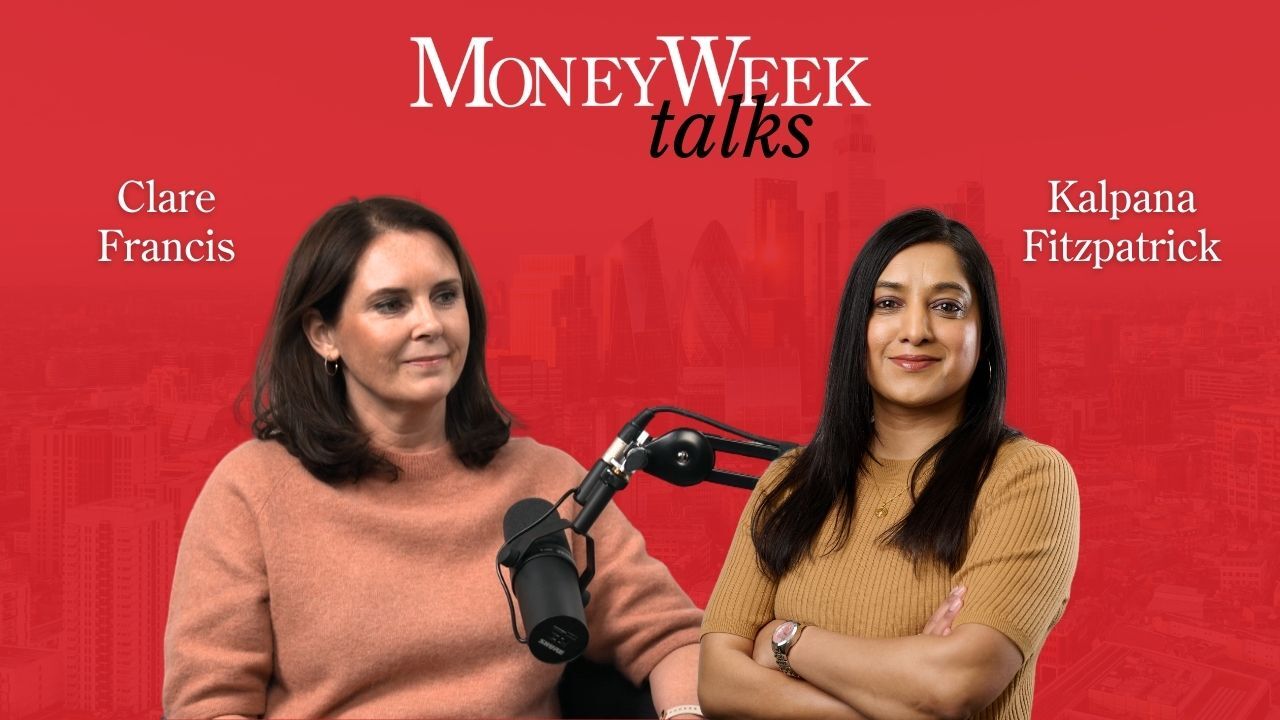Will the US subprime crisis cause a UK property meltdown?
Could America's subprime market woes be the catalyst for a UK slump? The Fleet Street Letter's Brian Durrant doesn't believe Uk estate agents need lose sleep over what's happening across the Atlantic.
Get the latest financial news, insights and expert analysis from our award-winning MoneyWeek team, to help you understand what really matters when it comes to your finances.
You are now subscribed
Your newsletter sign-up was successful
Want to add more newsletters?
As regular MoneyWeek and MoneyMorning readers will know, we remain pessimistic on the outlook for the UK property market. However, Brian Durrant takes a somewhat different view. See below to find out why he thinks British estate agents needn't lose sleep over America's subprime worries:
We have long maintained that the housing market will be the victim rather than the assassin of the UK economy. So as long as the UK economy delivers a rate of growth that ensures that unemployment is low and delivers a rate of inflation sufficiently controlled as to not require draconian interest rate hikes, then a UK property market crash does not look imminent.
This however has not stopped commentators scrambling around for potential catalysts that will cause a housing market meltdown. There is an old saying that when Wall Street sneezes, London catches a cold. And commentators were quick to put the worst possible spin on the sub-prime mortgage crisis that hit the US last month.
Try 6 free issues of MoneyWeek today
Get unparalleled financial insight, analysis and expert opinion you can profit from.

Sign up to Money Morning
Don't miss the latest investment and personal finances news, market analysis, plus money-saving tips with our free twice-daily newsletter
Don't miss the latest investment and personal finances news, market analysis, plus money-saving tips with our free twice-daily newsletter
The US subprime mortgage crisis
Sub-prime is a euphemism for extortionately priced loans taken out by poor home buyers with low credit ratings. Imagine a married man with two children who is in a low paid unskilled job. Its 2004, he rents his apartment and watches enviously as property prices and rents rise sharply in the US housing market boom. He decides that he wants a piece of the action. He doesn't go to the bank because he has had trouble with bills in the past. But a friend tells him that a mortgage broker will sort it out, despite his poor credit score and low income. The arrangement fees are wrapped up in a loan that starts off with low repayments. So the man who signs on the dotted line has just acquired an exploding ARM (adjustable rate mortgage), which turns out to be as dangerous as it sounds.
US subprime housing market For more detailed analysis of how the UK could be affected by troubles in the US housing market, read: What the subprime collapse means for your investments
By 2006 house prices have started to dip in his part of the city and his interest rate has gone up from 6% to 10%. He cannot pay and as there is no equity left to support a refinancing, he loses his home. The house is boarded up and auctioned, which pushes down the prices of properties in the area. So other sub-prime borrowers have no equity to support refinancing.
Debacles like this have caused mortgage foreclosures in the US to reach a 37 year high, while Martin Eakes chief executive of Self-Help, a lender and credit union, has estimated that 2.2 million families could lose their homes. Meanwhile the US Centre for Responsible Lending estimates that 20% of sub-prime mortgages made in the past two years could end in defaults meaning an extra 600,000 homes for sale. No wonder the doom-mongers were saying that a US housing market slump was just around the corner. And if US house prices crash, there will be an ill wind for UK home owners across the pond.
US property market: A localised difficulty
But once again the jeremiahs are clutching at straws. The reality is that the US is a segmented society both culturally and economically. In 2005 52% of loans made to African Americans were sub-prime and 80% of these loans were exploding ARMs. The map of mortgage delinquencies in the US dispels the notion that the deflation of a property bubble is triggering a systematic wave of defaults that could sink the US economy. The two US states where mortgage delinquency is the highest are Mississippi (10.6%) and Louisiana (9.1%), states recovering from Hurricane Katrina.
It is not therefore surprising that the Fed takes the view that the impact of the sub-prime crisis as not large and is broadly contained. Indeed in its latest statement the Fed declared that its predominant policy concern remains the risk that inflation fails to moderate. Accordingly bailing out the housing market on sub-prime concerns takes a back seat as far as the fed's agenda is concerned.
Sub-prime accounts for only 3% of the total value of the US housing stock. It follows that a tightening of sub-prime credit standards and a dumping of foreclosed properties will be a localised phenomenon, confirming the old adage that, particularly in the US, the rich get richer and the poor get poorer. So what will stop house prices rising in the UK? We are back to the underlying British economy. A slump prompting a serious rise in unemployment is not an imminent threat. A greater threat is the prospect of higher interest rates, prompted by a deterioration in the inflation picture. At least one more rate increase is almost certain, and if the global economy remains robust there could be more hikes. But just because the housing market does not have an assassin it does not imply that house prices have to keep on going up.
The equilibrium house price/ incomes ratios has risen
Some analysts argue that the ratio of house prices to incomes is historically very high and that ultimately this ratio will fall back towards its norm or long term average. However I would argue that the housing market has changed. Factors like low stable interest rates and shortage of supply (in parts of London, 80-100 buyers are chasing every property) suggest that the equilibrium house price to incomes ratio can be higher than some long term average.
On balance the next interest rate hike should see UK house price inflation tailing off, without crashing. But that is the average experience. Where buyers are queuing round the block are for prime, desirable residences or so called "positional goods", which are intrinsically in short supply, these properties have more upside. On the other hand, properties in unattractive areas with weak local economies and homeowners who are in the equivalent of the US sub-prime category are the most vulnerable. It's not just in America where the rich get richer.
By Brian Durrant for The Daily Reckoning. You can read more from Brian and many others at www.dailyreckoning.co.uk
Get the latest financial news, insights and expert analysis from our award-winning MoneyWeek team, to help you understand what really matters when it comes to your finances.
Brian has contributed to MoneyWeek with his expertise in investment strategy, for example how to quadruple your dividend income and how to navigate through the stock market in the 2008 financial crisis. He’s also touched on personal finance such as the housing market and the UK economy.
-
 The UK regions with the highest proportion of homes above the inheritance tax threshold
The UK regions with the highest proportion of homes above the inheritance tax thresholdHigh house prices are pushing more families into the inheritance tax trap across the country
-
 Are money problems driving the mental health crisis? MoneyWeek Talks
Are money problems driving the mental health crisis? MoneyWeek TalksPodcast Clare Francis, savings and investments director at Barclays, speaks about money and mental health, why you should start investing, and how to build long-term financial resilience.